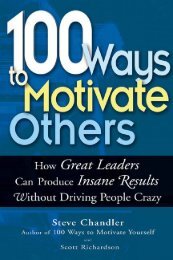How-to-Write-a-Better-Thesis
Create successful ePaper yourself
Turn your PDF publications into a flip-book with our unique Google optimized e-Paper software.
28 3 Mechanics of Writing<br />
The agricultural reforms have been seen <strong>to</strong> be successful, which has led <strong>to</strong> a surge in agricultural<br />
production and productivity, contributing <strong>to</strong> higher savings and investment, and the<br />
release of large amounts of labour for employment in emerging rural industry, notably <strong>to</strong>wn<br />
and village enterprises (Wheeler and Still 1992).<br />
Notice that it is not clear who saw that the reforms were successful. Even by the<br />
end of the sentence it is not clear whether Wheeler and Still saw that they were successful,<br />
or whether they stated that the consequent surge in agricultural production<br />
released labour for other activities, or both. Using the active voice forces you <strong>to</strong><br />
clarify, as in this revision:<br />
Chou and Yung (1991) showed that these agricultural reforms had led <strong>to</strong> increases in<br />
both agricultural production and productivity. Wheeler and Still (1992) claim that this<br />
increased productivity released labour for emerging rural industry, notably <strong>to</strong>wn and village<br />
enterprises.<br />
Note that using ‘showed’ rather than ‘have been seen’ enables me <strong>to</strong> avoid using the<br />
vague word ‘successful’, because I now define it, and know exactly who did what.<br />
Note also that I have made Wheeler and Still the subject of the second sentence,<br />
rather than just being a reference at the end of it, so the reader knows who was drawing<br />
the conclusion about the effects of increased productivity.<br />
Use of the First Person<br />
As the structures of science—papers, reviews, disciplines, and so on—became elaborated<br />
during the nineteenth century, the idea developed that science was impersonal,<br />
that a scientist was a disinterested observer of the unfolding of new knowledge.<br />
It followed that scientific researchers could not claim any personal credit (or even<br />
display excitement) over their discoveries when they came <strong>to</strong> report them. Theses,<br />
reports and scientific papers had <strong>to</strong> be written in the third person, as if someone else<br />
had made the discovery. To remove the presence of the writer from the text, scientists<br />
resorted <strong>to</strong> use of the passive voice.<br />
Originally scientists wrote perfectly clearly in the first person: ‘I observed that<br />
…’ or ‘We observed that …’ But over time, they began <strong>to</strong> use the third person: ‘The<br />
researcher observed that …’, or, if this wasn’t clear enough, the incorrect—and<br />
confusing—‘This researcher [which one?] observed that …’; or often the awkward<br />
‘The present writer observed that …’ Worse, they began <strong>to</strong> use the passive voice: ‘It<br />
was observed that …’, or, since the use of the passive may prevent us from knowing<br />
who observed, ‘It was observed by the present writer that …’ Using eight words<br />
where three did the job very well is one of the building blocks of thesiese.<br />
This tendency has never been as bad in the humanities, where authors are allowed<br />
<strong>to</strong> take positions, and the first-person, active voice is permissible and sometimes<br />
even encouraged. Nevertheless, writers in the humanities often hide behind<br />
the anonymous third person.<br />
When writing your thesis, what should you do? A thesis examiner may belong <strong>to</strong><br />
the old school. Rima decided <strong>to</strong> use the first person plural in her thesis: ‘We can see<br />
that …’, meaning, ‘I the writer and you the reader can see that …’ I did not discour-


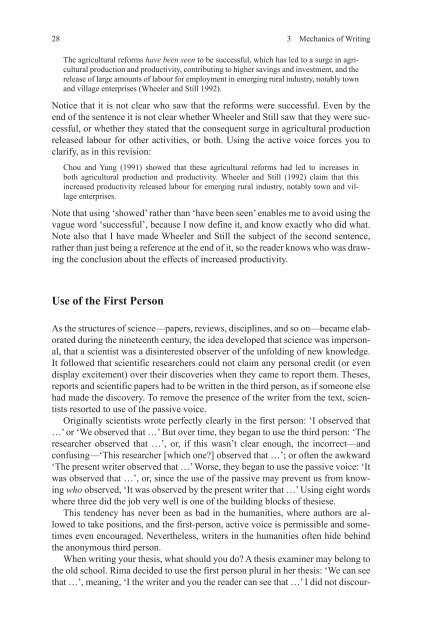

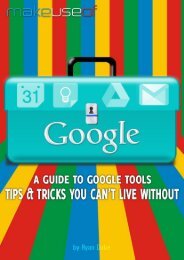

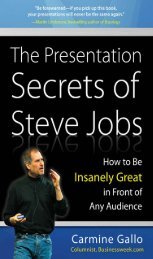
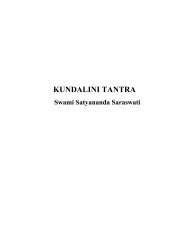
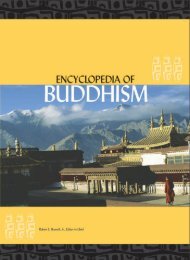
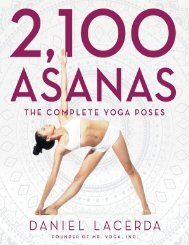



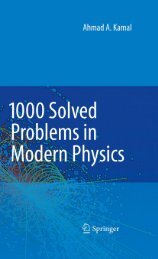
![[Lonely Planet] Sri Lanka](https://img.yumpu.com/59845622/1/169x260/lonely-planet-sri-lanka.jpg?quality=85)
